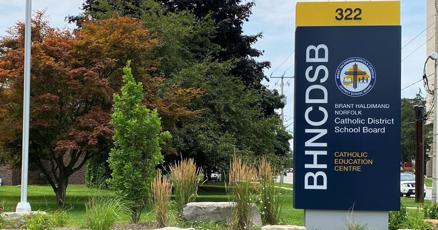A government-commissioned review has exposed that a costly $145,000 trip to Italy by trustees of the Brant Haldimand Norfolk Catholic District School Board (BHNCDSB) in July 2024 was not an isolated incident but indicative of broader, systemic governance issues within the board. The investigation, conducted by lawyer Aaron Shull, determined that while the trustees’ week-long trip and the subsequent $100,000 artwork purchase for a new Brantford high school sparked public controversy, the underlying cause lies in longstanding structural governance deficiencies. The review further highlighted the trip’s substantial financial impact, including an additional $63,000 in legal fees, and called for significant reforms to restore oversight and fiduciary responsibility in the BHNCDSB and potentially other Ontario school boards.
Overview of the BHNCDSB Italy Trip and Financial Implications
In July 2024, trustees of the Brant Haldimand Norfolk Catholic District School Board (BHNCDSB) undertook a week-long delegation trip to Italy, incurring expenses totaling $145,000. The trip’s purpose was initially described as an opportunity for trustees to gain cultural and educational insights that could inform their governance and community engagement strategies. However, public disclosure of the costs, compounded by a subsequent $100,000 purchase of artwork for a new high school in Brantford, triggered scrutiny from both local stakeholders and provincial officials.
The government-commissioned review, led by lawyer Aaron Shull, extensively examined the decision-making processes around these expenditures. Beyond the direct trip costs, the investigation revealed additional financial burdens, including legal fees exceeding $63,000 related to inquiries and challenges arising from the trip’s management and transparency. These figures underscored the significant fiscal impact of the trustees’ actions on the school board’s budget and highlighted questions about accountability.
Findings on Governance and Structural Deficiencies
Shull’s review concluded that the Italy trip was symptomatic of deeper, systemic governance problems within the BHNCDSB. The analysis identified key areas where the board’s governance structure and operational protocols lacked clarity and rigor, thereby enabling significant lapses in oversight and fiscal management. Among the documented issues were inadequate policies guiding trustee travel, insufficient transparency protocols, and weak financial controls that allowed such large expenditures without sufficient justification or stakeholder consultation.
Importantly, the review framed these governance issues as part of entrenched systemic flaws rather than isolated incidents. This finding suggests that similar risks and vulnerabilities may exist elsewhere within the BHNCDSB and could be present across other school boards in Ontario. The report emphasized the necessity for comprehensive governance reforms aimed at establishing clearer roles, responsibilities, and accountability mechanisms for trustees and senior administrators alike.
Recommendations for Reform and Accountability
To address the highlighted deficiencies, the review put forward several recommendations. These focus on enhancing the governance framework to ensure responsible stewardship of public funds and effective oversight by trustees. Key suggestions include:
- Implementing stricter guidelines and approval processes for trustee travel and related expenditures.
- Establishing transparent reporting mechanisms accessible to stakeholders and the public to foster accountability.
- Strengthening financial controls and audits to prevent unauthorized or unjustified spending.
- Providing training and support to trustees on governance best practices and fiduciary responsibilities.
The report also recommended that provincial oversight bodies consider extending governance audits to other school boards to proactively identify and rectify similar issues, aiming to restore public confidence in educational institutions’ management.
Community and Public Response
The revelations from the review prompted a strong public response, particularly from parents, educators, and community leaders concerned about financial stewardship and governance integrity at BHNCDSB. Many stakeholders expressed frustration over the perceived lack of fiscal discipline and the board’s ability to prioritize educational needs effectively. Some community members urged for immediate implementation of the report’s recommendations and called for more open dialogue between the board and the communities it serves.
Conclusion
The government-commissioned review into the BHNCDSB’s Italy trip has shed light on profound governance challenges that extend well beyond the immediate controversy of the $145,000 expenditure. The findings underscore the critical need for structural reforms to enhance accountability, transparency, and fiduciary responsibility within the school board. Addressing these systemic issues is essential to safeguarding public resources and maintaining trust in the governance of educational institutions in Ontario.
The investigation into the BHNCDSB trustees’ costly Italy trip has highlighted significant governance shortcomings that reflect deeper, structural failures within the board. Beyond the financial repercussions of the trip and related expenditures, the review calls attention to inadequate oversight mechanisms and a lack of robust policies guiding trustee conduct and spending. Implementing the recommended reforms will be vital to restoring fiscal responsibility, enhancing transparency, and rebuilding public confidence in the board’s management. Moreover, the findings serve as a cautionary indicator for other school boards across Ontario, emphasizing the importance of systemic governance improvements to ensure accountable and effective stewardship of educational resources.

